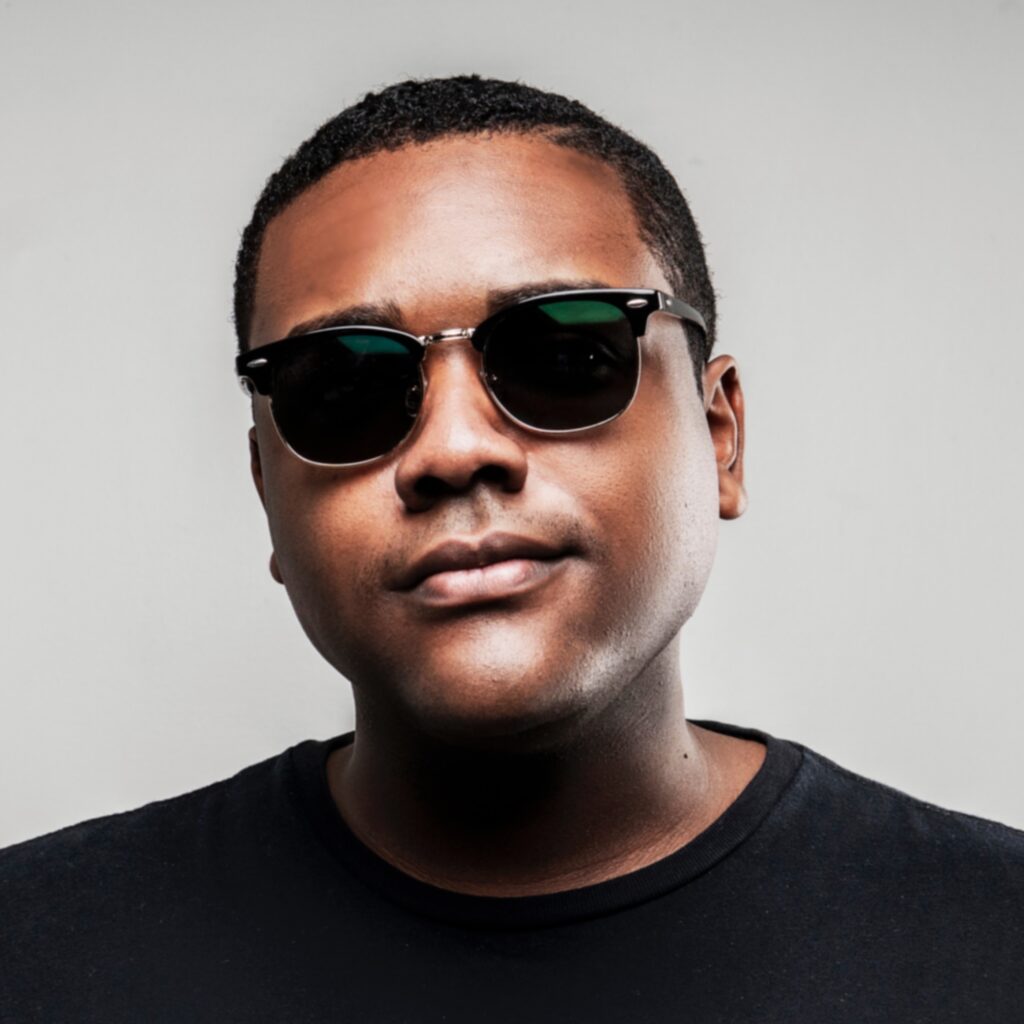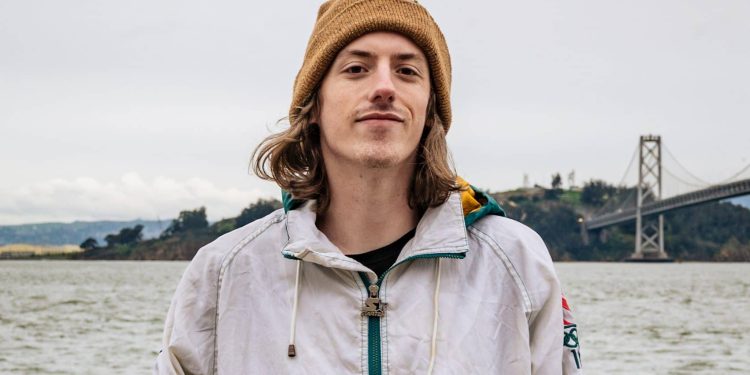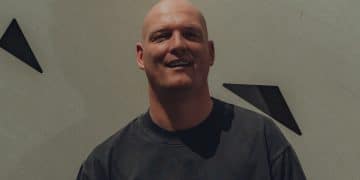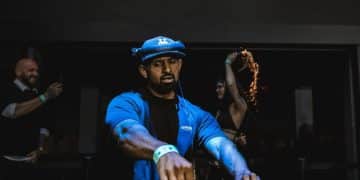Nashville-based DJ and producer merchant swung by to chat about his Jamaican roots and his goal of bringing Afro-Caribbean-infused sounds to the masses.
Listen closely to the current era of the dance music scene, and you’ll find plenty of Caribbean influences dripping into genres from house to bass and more. One artist championing those Afro-Caribbean sounds is merchant, a DJ and producer hailing from Jamaica who now calls Nashville home.
Nashville might not be the first place you’d think of for merchant to see success in the scene, but he’s spread his wings there and grown in major ways over the past few years. His edits of tracks like Damian Marley’s “Welcome to Jamrock,” John Summit‘s “Where You Are,” and Bad Bunny’s “Monaco” show off his innovative approach in the studio, and it quickly began to turn heads. Major acts like Francis Mercier, Themba, and Pete Tong have signed off on merchant’s releases, and it’s clear he’s ready to take the next step forward in his career.
On February 21, merchant will release the fresh single “Tu Ta Le.” The Jamaican artist teamed up with London-based producer Hoax (BE) and Kenyan star Idd Aziz on the track to further encapsulate the global feel. Luckily, merchant had some time to chat before the tune dropped, and we jumped at the opportunity to dive into everything from his Jamaican roots to his thoughts on the scene in Nashville and more. Listen to his exclusive guest mix and read on for the full conversation!
Stream EDMID Guest Mix 457 || merchant on SoundCloud:
Hi merchant, thanks for chatting with us today. Before we get too far into the conversation, let’s dig into your roots. Tell us about your journey and how you developed a love for electronic music. Were there any specific artists or moments who were influential?
I’ve got to credit my Jamaican upbringing for sparking my fascination with rhythms in the first place. Growing up, I was surrounded by reggae and dancehall, which laid the foundation for how I hear music. But there was a moment in my teens when I stumbled across electronic tracks that incorporated those same percussive elements I knew from home—artists like Major Lazer, early Diplo, and even some UK-based producers who were fusing Jamaican sounds into electronic records. That fusion lit a spark in me.
From there, it was a gradual immersion. I’d experiment in my bedroom studio, trying to layer Afro rhythms on top of classic dancehall or reggae grooves, figuring out how to blend them with electronic elements in a way that felt authentic. Each step of the journey was fueled by curiosity: “What if I sample this vocal, or rearrange that percussion?” Every discovery made me fall deeper in love with the genre.
Moving to the present, your latest single, “Tu Ta Le,” sees you team up with Hoax (BE) and Idd Aziz. It’s impressive how globally influenced it is, with the three of you from separate continents. Can you share how this tune came together? What was the collaboration process like?
“Tu Ta Le” was born out of this idea that Afro House is truly global—it’s a meeting point for cultures. Hoax (BE) and Idd Aziz each brought their own distinct flavor to the project, and that synergy was insane. We started trading ideas over social media—sending voice memos and short loops back and forth. Hoax had this strong, driving foundation, and Idd’s vocals immediately elevated the entire production, infusing it with that East African warmth. My role was to weave in my Jamaican/Afro-Caribbean influences, so you get that layered percussion and a rhythmic flow that ties it all together.
Despite being scattered across different continents, it felt like we were in the same room. We’d jump on calls, toss around melodic ideas, and refine each other’s contributions until it all clicked. Collaboration in the digital age is wild, but it shows you can create genuine chemistry with people you’ve never even met in person—and I think “Tu Ta Le” captures that energy perfectly.
Aside from your original tunes, you’ve generated plenty of buzz with remixes of tunes like John Summit’s “Where You Are” and Damian Marley’s “Welcome to Jamrock.” Is there something specific that draws you to a tune to make an edit like these ones?
I always look for something that resonates with my Jamaican roots or my Afro-inspired vision. With “Where You Are,” it was that earworm vocal—it felt prime for a deeper, more rhythmic take. And let’s be real, “Welcome to Jamrock” has a special place in my heart. Damian Marley’s vocal tone and that raw dancehall DNA are iconic. When I hear a track that sparks an idea—maybe it’s a killer melody or a vibe that could blend well with Afro House patterns—I’m instantly fired up. My goal is to pay homage to what makes the original so special while injecting a fresh burst of percussive energy.
What has it felt like to receive such immense support from movers and shakers in the scene like Francis Mercier, Pete Tong, and more as you continue to grow?
It’s been surreal, honestly. When people you respect—who’ve shaped the electronic music landscape—start championing your tracks, it’s an affirmation that your instincts are on point. Francis Mercier has been big on bridging Afro House with mainstream dance floors, so getting props from him is huge. Pete Tong is basically dance music royalty, so having his nod means I’m hitting the right balance between underground and accessible. It’s both humbling and motivating. Each co-sign pushes me to dig even deeper, explore new sounds, and keep evolving.
What’s been the biggest hurdle you’ve faced in your career? Have you been able to overcome it?
Early on, I had to figure out how to fuse my Jamaican heritage with electronic music without sounding forced or gimmicky. There weren’t many roadmaps for that exact blend, especially when I started. I worried whether labels or promoters would be into it—or if it would be too niche. But I kept fine-tuning my sound, trusting that people crave authentic music that shows them a new perspective.
It took time, but once I started seeing crowds react—really react—to that fusion, the doubts faded. Now, I see it as my unique lane rather than a hurdle. Sometimes, pushing boundaries means going in blind, but if your foundation is solid, you’ll eventually find your audience.

Jamaica has a deep-rooted history in music, and its styles have been the backbone of many contemporary electronic genres, yet it doesn’t always get the credit it deserves. What are your thoughts on its legacy? Could the scene do a better job honoring it?
Jamaica’s impact on global music is massive, from the birth of reggae to the blueprint for modern dancehall. So many styles—like UK jungle or even certain strains of EDM—borrow heavily from Jamaican rhythms. It’s a bit bittersweet because while the influence is undeniable, the credit isn’t always explicit. But I think that’s changing. More producers and DJs are openly acknowledging those roots and drawing direct lines back to Jamaica.
Could the scene do better? Absolutely. I’d love to see more collaborations with Jamaican artists, more spotlighting of the island’s musical pioneers, and more educational segments in festivals or events—anything that shows people where these rhythms originated. It’s about celebrating the source as we keep evolving the sound.
You’re currently based out of Nashville, which is a bit off the beaten path of dance music-dominated cities. What has your experience been like with the scene there?
Nashville surprises people. Sure, it’s “Music City” for country and rock, but the electronic scene here is gaining serious momentum. I have to shout out two sets of key players: Austin Knight and his Night We Met team, who are pioneering dance acts in ways this city’s never seen, and Blake and Joel Atchison of Full Circle Presents, who’ve built massive shows with top-billed acts and created a vibrant festival experience at Deep Tropics.
Because it’s not as saturated as LA or Miami, there’s real room to carve out your own space. It’s a semi-blank canvas, and for me, that’s liberating—I can blend my Jamaican roots with Afro House without worrying about fitting a mold. It might be a smaller scene, but it’s driven by a tight-knit community, genuine creativity, and a shared love for pushing boundaries.
Finally, what goals do you hope to achieve in the rest of 2025? Can we expect more releases and performances in the near future?
I’m looking to drop more collaborations that push my sound further—maybe linking up with vocalists from different parts of Africa or the Caribbean, and continuing to fuse those global influences. Live performances are definitely on the agenda, too. I want to hit more festivals, bring that Afro House vibe to bigger stages, and showcase the bridge between Jamaican culture and electronic music.
Beyond that, I’m really focused on pioneering and solidifying a Caribbean House movement. Producers like Sparrow and Barbossa have already started exploring this territory, and as a Jamaican, I feel a responsibility to take that baton and run with it. It’s not about overshadowing anyone—it’s about amplifying this blend of rhythms, vocals, and energy that’s deeply rooted in our culture.
The goal is to shine a brighter light on up-and-coming talent from the islands, maybe through a curated label project or events. 2025 feels like a tipping point for Afro House and its many offshoots, and I’m excited to be part of that wave, championing the culture and showcasing just how vast and vibrant this sound can get.
Follow merchant:
Website | Instagram | SoundCloud | YouTube








